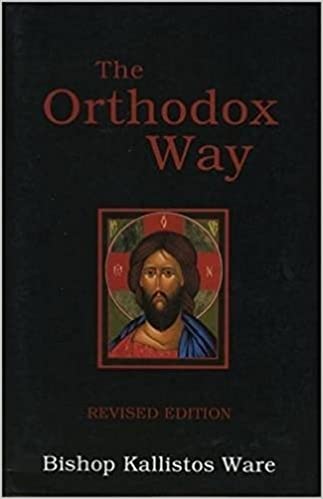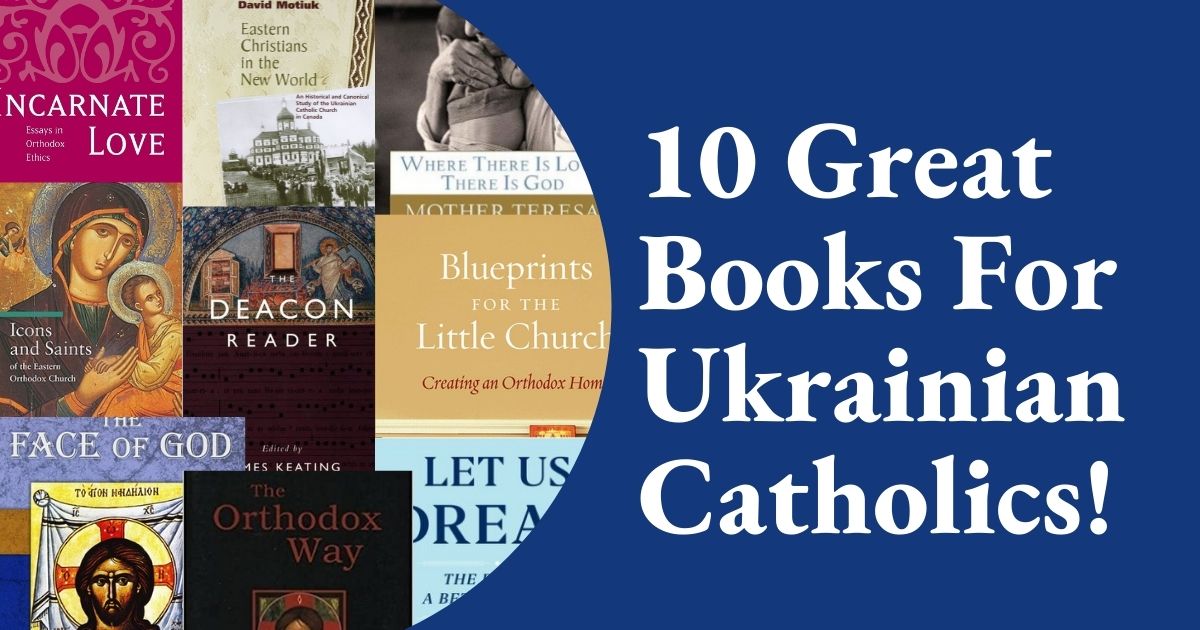Sign Out These Books For Free at the Resource Library!
Looking for a new book to learn more about Eastern Christianity? We asked our Resource Librarian for a few suggestions on some of the most signed-out books from our Resource Library. All of these books are available to sign out at the Eparchy of Edmonton’s Resource Library for free. To create an account, view our entire catalogue, and learn more, visit our Resource Library page here!
The Face of God
By: Archbishop Joseph M. Raya
This book reflects the dynamic spirit of Eastern Christianity. It will help lead its readers into a deeper relationship with the holy, consubstantial, and life-creating Trinity, the God Who is Love.
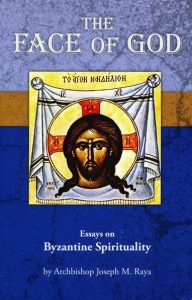
Blueprints for the Little Church: Creating an Orthodox Home
By: Caleb Shoemaker
How do we as Orthodox parents keep our children in the Church throughout their lives? It all begins with involving them in the life of the Church from birth onward—in the parish and also at home. Blueprints for the Little Church provides practical ideas and encouragement—without judgment—for incorporating the primary practices of Orthodox spirituality into your family life at every stage of its growth and throughout the church year.
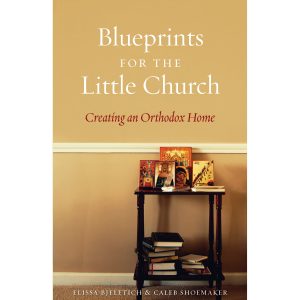
Let Us Dream: The Path to a Better Future
By: Pope Francis, Austen Ivereigh
In this uplifting and practical book, written in collaboration with his biographer, Austen Ivereigh, the preeminent spiritual leader explains why we must–and how we can–make the world safer, fairer, and healthier for all people now. In the COVID crisis, the beloved shepherd of over one billion Catholics saw the cruelty and inequity of our society exposed more vividly than ever before. He also saw, in the resilience, generosity, and creativity of so many people, the means to rescue our society, our economy, and our planet. In direct, powerful prose, Pope Francis urges us not to let the pain be in vain. He begins Let Us Dream by exploring what this crisis can teach us about how to handle upheaval of any kind in our own lives and the world at large. With unprecedented candor, he reveals how three crises in his own life changed him dramatically for the better. By its very nature, he shows, crisis presents us with a choice: we make a grievous error if we try to return to some pre-crisis state. But if we have the courage to change, we can emerge from the crisis better than before. Francis then offers a brilliant, scathing critique of the systems and ideologies that conspired to produce the current crisis, from a global economy obsessed with profit and heedless of the people and environment it harms, to politicians who foment their people’s fear and use it to increase their own power at their people’s expense. He reminds us that Christians’ first duty is to serve others, especially the poor and the marginalized, just as Jesus did. Finally, the Pope offers an inspiring and actionable blueprint for building a better world for all humanity by putting the poor and the planet at the heart of new thinking…
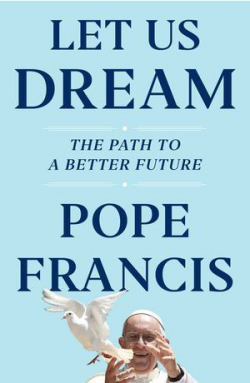
Christ Our Pascha
By: Ukrainian Greek Catholic Church
The Catechism of the Ukrainian Catholic Church Christ – Our Pascha is “both a profession and an explanation of our Church’s faith in the Triune God—Father, Son, and Holy Spirit. This faith emerged from listening to the Gospel of Christ, which—according to tradition—first resounded in the lands of Rus-Ukraine through the preaching of Saint Andrew the First-Called. This same Good News echoed onwards through the mission of the holy apostles to the Slavs, Cyril and Methodius, and was ultimately ratified in the Baptism of Rus-Ukraine during the reign of Volodymyr the Great, Equal-to-the-Apostles. The Word of the Gospel found its response of faith in the hearts of those who listened. Thus Christ’s Church spread throughout Kyivan Rus. This new Christian tradition—with the appropriate appellation of Kyivan—became a pearl in the Universal Church’s treasury of faith. Countless generations of Christians, of Ukrainian as well as other cultures, were raised in this tradition.” The Catechism is published by the Synod of the Ukrainian Greek-Catholic Church and the Commission for the Catechism of the Ukrainian Greek Catholic Church. It first appeared in Ukrainian in 2012, and was published in English in 2016. Every effort has been made in the English edition to retain as nearly as possible the precise phrasing of the original Ukrainian language second edition.
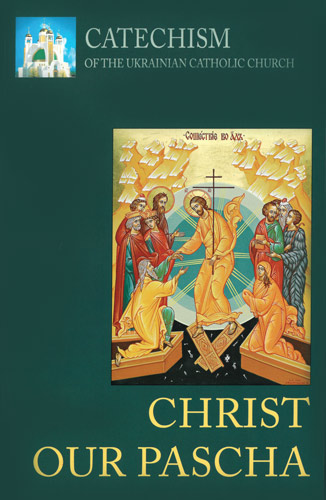
Eastern Christians in the New World: An Historical and Canonical Study of the Ukrainian Catholic Church in Canada
By: Bishop David Motiuk
When Ukrainians began immigrating to Canada in the late 1800s, most were farmers seeking a better way of life. Of the few possessions they brought with them, none was more precious than their faith. The newcomers went to great lengths to ensure that this faith was passed on to their children and grandchildren.
More than a hundred years have passed. As the Ukrainian Catholic Church in Canada meets the challenges of a new millennium, it does so with a sense of renewal, of reverence for its rich spiritual heritage, of vibrant hope for the future. One aspect of this Church’s renewal is the revision of its Particular Law in light of the Second Vatican Council and the newly promulgated Code of Cans of the Eastern Churches.
David Motiuk’s study is a canonical and historical overview of the development of the Ukrainian Catholic Church in Canada, helping the growth of the first communities, the appointment of its first bishop, and the establishment of the Metropolitan See of Winnipeg. The author examines relations with the Latin Church, various decrees of Bishop Nykyta Budka, Bishop Basil Ladyka, and the Ukrainian Catholic Conference in Canada. He also explores the role played by the Ukrainian bishops from Canada in re-establishing synodal governance in the Ukrainian Catholic Church as a whole.
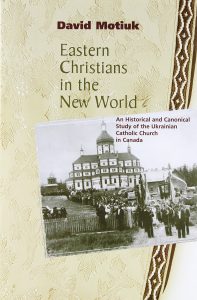
Incarnate Love: Essays in Orthodox Ethics, Second Edition
By: Vigen Guroian
Incarnate Love is a major contribution to both Orthodox ethics and to Christian self-understanding. Completely revised with a new preface and two additional chapters, this work aims to articulate a social ethic that can make sense of the Orthodox experience in the United States, as well as challenge the Orthodox tradition to formulate a new strategy for church and societal interaction.
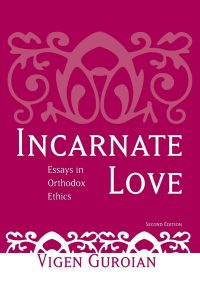
Icons and Saints of the Eastern Orthodox Church
By: Alfredo Tradigo
An icon (from the Greek word “eikon,” “image”) is a wooden panel painting of a holy person or scene from Orthodox Christianity, the religion of the Byzantine Empire that is practiced today mainly in Greece and Russia. It was believed that these works acted as intermediaries between worshipers and the holy personages they depicted. Their pictorial language is stylized and primarily symbolic, rather than literal and narrative. Indeed, every attitude, pose, and color depicted in an icon has a precise meaning, and their painters–usually monks–followed prescribed models from iconographic manuals. The goal of this book is to catalogue the vast heritage of images according to iconographic type and subject, from the most ancient at the Monastery of Saint Catherine in the Sinai to those from Greece, Constantinople, and Russia. Chapters focus on the role of icons in the Orthodox liturgy and on common iconic subjects, including the fathers and saints of the Eastern Church and the life of Jesus and his followers. As with other volumes in the Guide to Imagery series, this book includes a wealth of color illustrations in which details are called out for discussion.
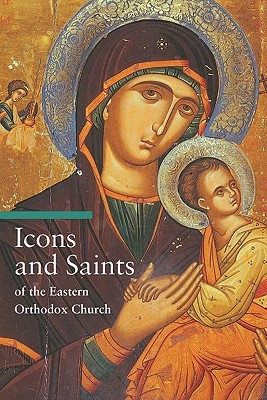
Where There Is Love, There Is God: Her Path to Closer Union with God and Greater Love for Others
By: Mother Teresa
In this book, Mother Teresa’s relationship with God and her commitment to those she served – the poorest of the poor – is powerfully explored in her own words. Taken largely from her private lessons to her sisters, this book unveils her extraordinary faith in, and surrender to, God’s will. Through the practical and timely advice she offers, Mother Teresa sets us on the path to closer union with God and greater love for our brothers and sisters.
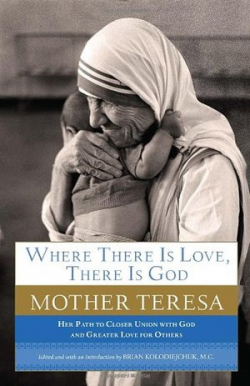
The Deacon Reader
By: James Keating
The essays collected in this book, which is sure to be at the foundation of every deacon’s library, aim to give the reader an overview of the theological and pastoral nature of the diaconate and thus to clarify the fundamental identity of the deacon, for those who are discerning such a call as aspirants and those who are already candidates for the office. Editor and contributor James Keating divides the book into three sections: historical foundations, pastoral foundations, and sociological foundations for the diaconate, i.e., the core elements of the diaconal identity. Some of the subjects covered are the history of the diaconate, the morality of the deacon, the deacon and work, and the deacon’s wife. The most significant deacon theologians contribute to this text as well as priest experts on the diaconate. It is a complete systematic academic text for the first years of formation of deacons according to the New Roman National Directory (2005). As such, it is indispensable. This is the first text ever that specifies the theological formation of the deacon student over a range of themes and specialties. There is nothing like it in print.
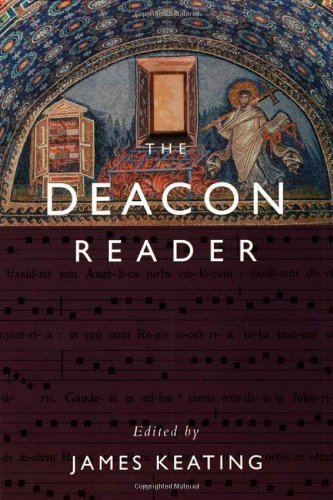
The Orthodox Way
By: Kallistos Ware
This book is a general account of the doctrine, worship, and life of Orthodox Christians by the author of the now-classic “The Orthodox Church”. It raises the basic issues of theology: God as hidden yet revealed; the problem of evil; the nature of salvation; the meaning of faith; prayer; death and what lies beyond. In so doing, it helps to fill the need for a modern Orthodox catechism. Yet this book is not a mere manual, a dry-as-dust repository of information. Throughout the book, Father Ware shows the meaning of Orthodox doctrine for the life of the individual Christian. Doctrinal issues are seen not as abstract propositions for theological debate but as affecting the whole of life. A wealth of texts drawn from theologians and spiritual writers of all ages accompanies Father Ware’s presentation. They too reveal Orthodoxy not just as a system of beliefs, practices, and customs but indeed as the Way.
